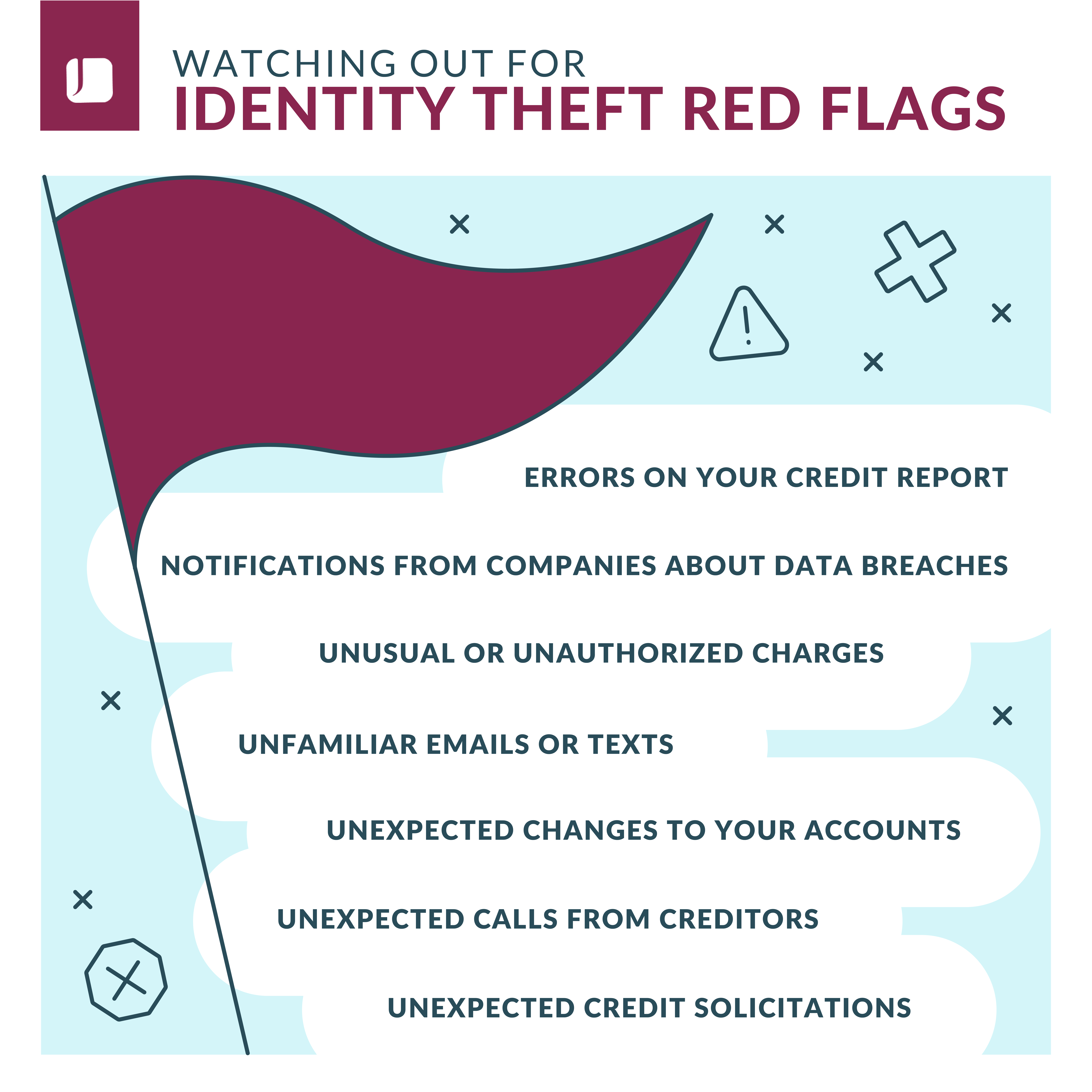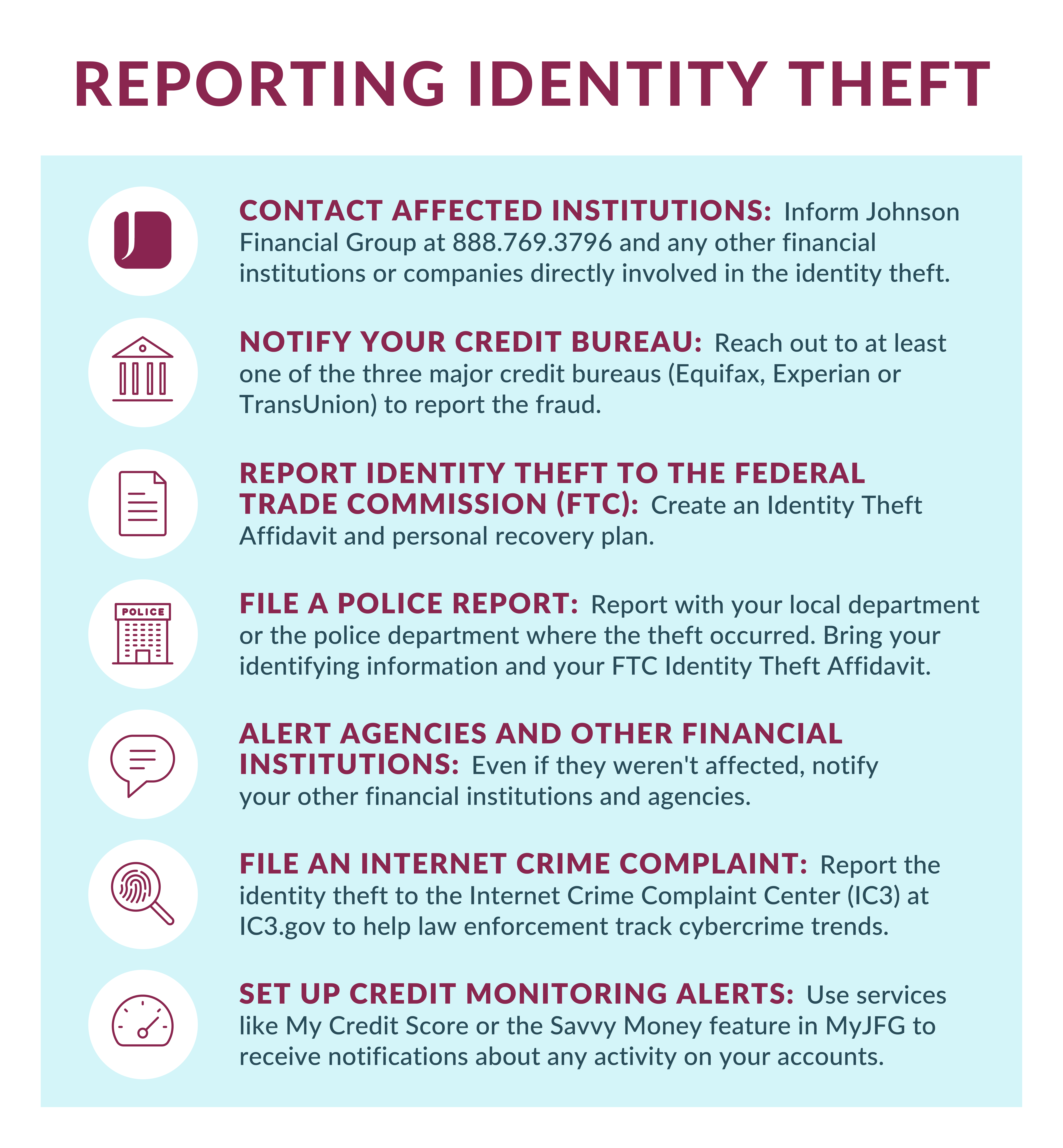SUMMARY
Wondering how you can safeguard your personal information? Consider these guidelines on how to avoid identity theft.
In today’s digital age, protecting your personal information has never been more crucial. Identity theft can happen to anyone and the consequences can be devastating. Fortunately, there are proactive steps you can take to safeguard your identity. In this article, we’ll share our essential tips on how to avoid identity theft, helping you stay one step ahead of potential fraudsters and threats.
What’s identity theft?
Identity theft occurs when someone with malicious intent gains access to your personal or personally identifiable information. This can happen in various ways, often outside of your control. For instance, a skimmer on an ATM might capture your debit card details, or your data could be exposed in a major corporate breach — events that are all too common these days.
Once identity thieves have even a small piece of your information, they can use it to open new financial accounts in your name, impersonate you to gather more data from companies you do business with or contact you impersonating trusted entities such as your financial institution to extract additional information. They may start with something as simple as a compromised credit card number and then employ phishing tactics or false pretenses to build a more complete profile.
Many of us have likely had our identities compromised at some point, even if we aren’t aware of it yet. Given the prevalence of nationwide data breaches across various institutions and industries, it’s crucial to understand the risks and take proactive steps to protect your personal information.
What are the red flags of identity theft?

Identifying the signs of identity theft early can help minimize its impact. Here are some red flags to watch out for:
- Unusual or Unauthorized Charges: Keep a close eye on your bank and credit card statements. If you notice any transactions that you don't recognize, no matter how small, they could be a sign that someone has gained access to your account. Make sure you monitor your transactions frequently to ensure your accounts are secure.
- Unexpected Credit Solicitations: If you start receiving approval letters for credit cards, loans or other financial services that you didn’t apply for, it could indicate that someone is trying to open accounts in your name.
- Unfamiliar Emails or Texts: Be wary of emails or text messages that appear to be from financial institutions, service providers or other organizations asking for personal information. Phishing scam attempts often mimic legitimate communications to trick you into divulging sensitive data.
- Unexpected Calls from Creditors: If you receive calls or letters from debt collectors about accounts you didn't open or payments you supposedly missed, it’s a strong indication that your identity may have been compromised.
- Errors on Your Credit Report: Regularly check your credit report for any inaccuracies or accounts you don't recognize. Unexplained changes can be a clear sign of identity theft.
- Notifications from Companies About Data Breaches: If you receive a notification that your personal information may have been compromised in a data breach, take it seriously. Even if you don't immediately see any issues, it's important to monitor your accounts closely.
- Unexpected Changes to Your Accounts: Be alert for any unauthorized changes to your account information, such as a new address, phone number or email. These changes could be made by someone trying to gain control of your accounts.
If you notice any of these red flags, act quickly to protect your identity and minimize potential damage. Contact your financial institutions, report the issue to the appropriate authorities and consider placing a fraud alert or credit freeze on your credit reports.
Are you smarter than a fraudster?
Can you find the scams? Take this quiz from the American Bankers Association (ABA) to see if you can outsmart fraudsters on the phone, by text or online.
How to Avoid Identity Theft
Protecting your personal information is crucial in today's digital age. By adopting a few smart habits and staying vigilant, you can significantly lower your risk of becoming an identity theft victim.
- Choose ATMs Wisely: Opt for ATMs located at banks. These are typically more secure and less likely to be tampered with.
- Opt for Contactless Payment: Whenever possible, use contactless payment methods to reduce the risk of your card information being skimmed or stolen.
- Shred Sensitive Mail: Don't just toss junk mail and credit offers in the trash. Shred them to prevent personal information from falling into the wrong hands.
- Report Lost or Stolen Items Promptly: If your credit cards, IDs or other sensitive items go missing, notify your creditors and financial institutions immediately to minimize potential damage.
- Freeze Your Credit Report: When you don't need to access new credit, consider placing a freeze on your credit report. This makes it harder for identity thieves to open new accounts in your name.
- Practice Safe Browsing:
- Ensure websites use HTTPS and have a padlock icon in the URL.
- Double-check URLs for any misspellings or suspicious additions.
- Be cautious of public Wi-Fi networks and consider using a VPN for added security.
- Stay Vigilant Against Scams:
- Be wary of unsolicited requests for personal information. Remember: Banks never ask for your PIN, password, social security number or one-time passcode.
- Take a moment to think about what information is being asked for and whether it's truly necessary.
- Remember, legitimate companies won't pressure you for immediate action. Trust your instincts — if something feels off, it probably is.
By following these steps, you can significantly reduce your risk of becoming an identity theft victim. Stay proactive and always prioritize the safety of your personal information.
How to Report Identity Theft

Discovering that you’ve fallen victim to identity theft can be overwhelming, but quick action is key to minimizing the impact. Here are the seven steps you should take to resolve identity theft:
- Contact Affected Institutions: Inform Johnson Financial Group at 888.769.3796 and any other financial institutions or companies directly involved in the identity theft. They can help secure your accounts and investigate the fraud.
- Notify Your Credit Bureau: Reach out to at least one of the three major credit bureaus (Equifax, Experian or TransUnion) to report the fraud. They will place a fraud alert on your credit report and notify the other bureaus:
- Equifax | 800.685.1111| equifax.com
- Experian | 888.397.3742 | experian.com
- TransUnion | 800.680.7289 | transunion.com
- Report Identity Theft to the Federal Trade Commission (FTC): Create an Identity Theft Affidavit and personal recovery plan.
- File a Police Report: Report with your local department or the police department where the theft occurred. Bring a copy of your FTC Identity Theft Affidavit, any proof of the theft, a government-issued ID with a photo and proof of your address.
- Alert Agencies and Other Financial Institutions: Even if they weren't affected, notify your other financial institutions. They can enhance security measures to protect your accounts from further attempts. You can also contact the Postal Inspection Service, Social Security Fraud Hotline and/or your local DMV office if necessary.
- File an Internet Crime Complaint: Report the identity theft to the Internet Crime Complaint Center (IC3) at IC3.gov. This step helps law enforcement investigate and track cybercrime trends.
- Set Up Credit Monitoring Alerts: Use services like My Credit Score or the Savvy Money feature in MyJFG to receive notifications about any activity on your accounts. Carefully review and report any discrepancies immediately.
Taking these steps promptly can help mitigate the damage and prevent further misuse of your personal information.
Identity theft can be a frightening and stressful experience but by staying informed and proactive, you can protect yourself and minimize the risk. Start by implementing the fraud prevention strategies and reporting steps we've outlined. Remember, early detection and action are key to stopping identity thieves in their tracks. Don't wait — take control of your personal information today and sign up for credit monitoring alerts to stay one step ahead.

